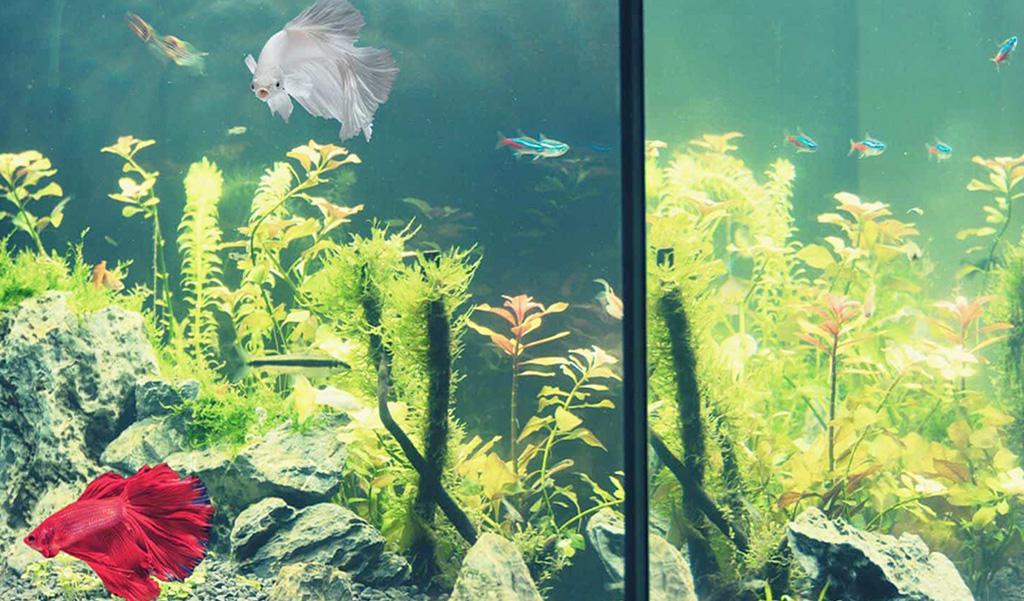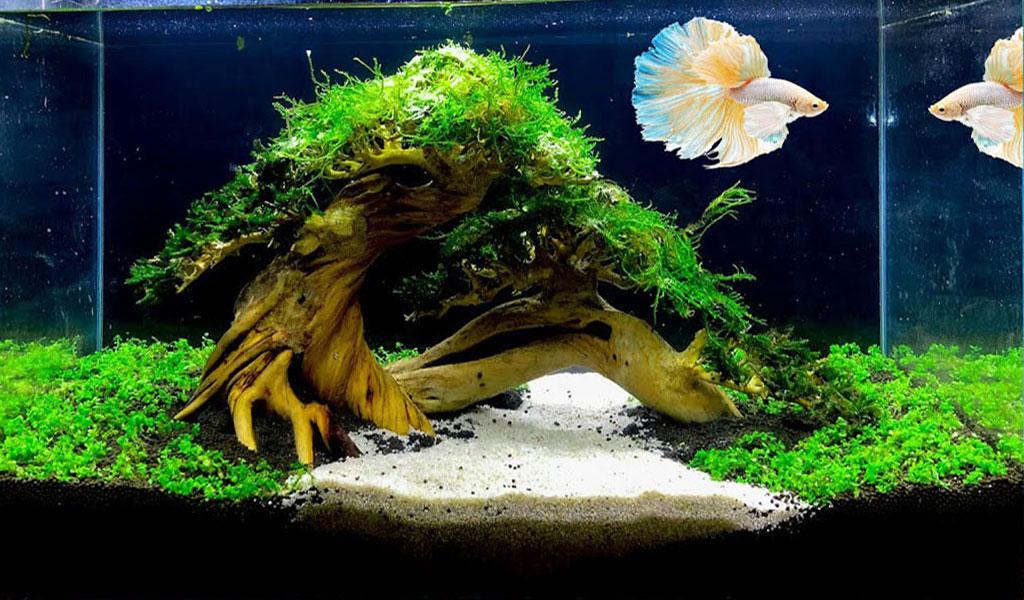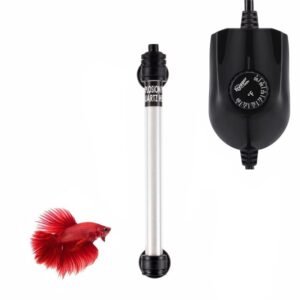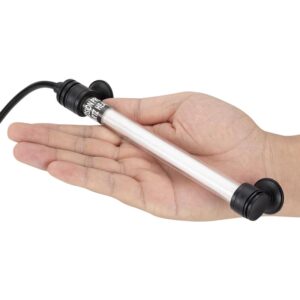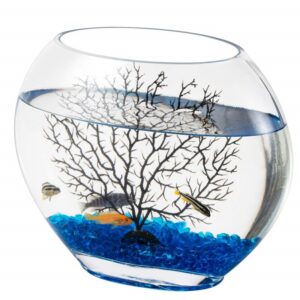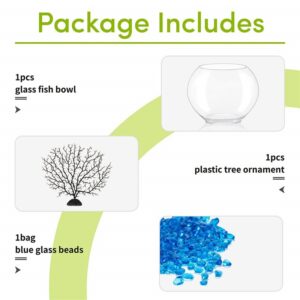Betta Fish for Beginners: A Comprehensive Guide to Owning Your First Betta
By Wesley Oaks from bettafishbay.com
If you’re looking for a low-maintenance, beautiful addition pet to your home – look no further! Betta fish is an unbeatable choice. They’re so easy to care for that they almost care for themselves! Not only do they require minimal effort on your part, but these little wonders offer huge returns in joy and satisfaction.
These incredible creatures have long been beloved by everyone, from experienced aquarists to absolute beginners. With their vibrant colors and graceful swimming style, bettas make an eye-catching addition to any tank or bowl. And best of all, they don’t need much space or specialized equipment to thrive.
Plus, taking care of fish can be incredibly rewarding — watching them swim around the tank will bring countless hours of pleasure into your life.
No matter what type of beginner you are, owning a betta can provide you with endless enjoyment without needing too much work.
Read on to learn more about this magical species and discover why they’re such great companions for those starting in the world of aquatic pets!
Characteristics Of Betta Fish
Betta fish are an exciting choice for novice aquarists. These stunning, low-maintenance fish come in a wide range of colors and shapes, making them incredibly beautiful additions to any aquarium.
Male bettas have long-flowing fins, while females tend to be smaller with less extravagant finnage. Bettas are also quite hardy; they can survive in a variety of water temperatures, from 75 °F – 82 °F. They’re also fairly low maintenance and require regular feedings only once or twice daily. Plus, they love interacting with their owners.
In addition to being attractive and easy to care for, betta fish don’t need much space to stay healthy and happy. A single betta can live happily in as little as five gallons of water.
This makes them ideal inhabitants even for small tanks or bowls without filtration systems–just make sure you do frequent water changes, so your betta stays clean and healthy!
Advantages Of Keeping Betta Fish As Pets
There are many advantages of keeping betta fish as pets that you should consider before deciding to get one.
Because these fish can live comfortably in smaller tanks than other aquatic species, it is easy and affordable to set up a suitable habitat for them.
In addition, these beautiful creatures boast vibrant colors that come alive when given proper care and nutrition. So if you’re looking for something special to add color and personality to your home decor, look no further than a betta fish!
Watching them flit around will provide entertainment while also helping you relax after a long day at work or school.
Plus, since they love interacting with humans – whether through talking or hand-feeding – having one living in your home can feel like having another family member around!
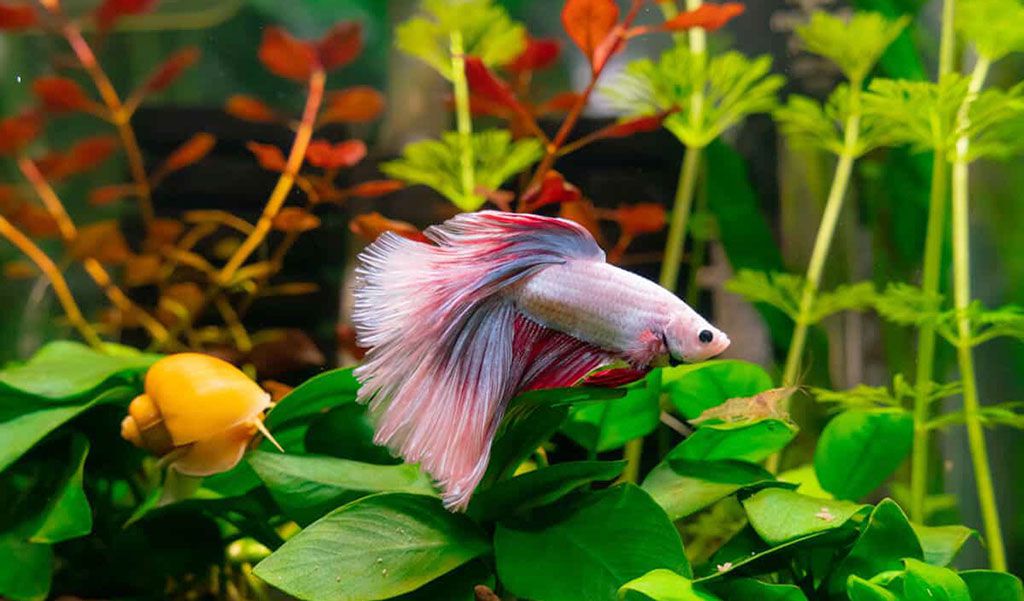
Disadvantages Of Keeping Betta Fish As Pets
Betta fish can be a great addition to any home, but some important disadvantages should be considered too.
Bettas are solitary creatures by nature which means keeping two together can result in aggressive behavior as well as health issues due to stress.
In short, owning betta fish does come with some responsibility when it comes to care and upkeep, so prospective owners must consider this before making the commitment.
It’s also essential that adequate living conditions are provided since inadequate habitats can lead to significant problems down the line, including poor health or even death from exhaustion.
Proper Aquarium Setup For Betta Fish
An aquarium is a dreamy home for any betta fish, and setting it up correctly can be surprisingly simple. To get started, you’ll need no more than five essential items: fish tank/bowl, filter, heater, substrate, and decorations.
The size of the tank should depend on how many fish you have; typically for one betta fish, anything from 5–10 gallons would be ideal.
The filter will help keep the water clean, so your pet can live in a healthy environment. A betta heater may also be necessary depending on the temperature of your room.
Substrate helps maintain water quality by acting as a natural filter and adding vital minerals to the water.
Finally, decorations such as rocks or plants add depth to create an eye-catching aesthetic that mimics their natural environment.
With proper setup, they will enjoy living in the new home while giving years of joy back to you.
Tank Mates For Betta Fish
While betta can live alone, you may be wondering if it’s a good idea to add tank mates.
In general, betta fish don’t always do well with other fish in the same tank. This is because they’re territorial and have an aggressive nature towards other species of similar size or shape. They’ll often attack each other out of instinct, even when there’s plenty of room in the tank for all inhabitants. To prevent this from happening, it’s important to choose compatible tank mates that won’t provoke aggression from your betta.
Some suitable tank mates include small snails like nerite snails, ghost shrimp, rasbora tetras, corydoras catfish, and some peaceful bottom-dwelling species such as loaches or dwarf froglets.
All these animals need very little care and tend to stay out of harm’s way – which makes them great companions for bettas! It’s also important to provide adequate hiding places within your tank, so all inhabitants have somewhere safe to retreat when needed.
Adding tank mates should only be done after careful consideration; improper selection could lead to stress and possible injury for both your betta and its newfound friends. With the right combination of compatible creatures, however, everyone will benefit from living together harmoniously in one beautiful aquatic paradise!
Feeding And Water Requirements For Betta Fish
Now that you know potential tank mates for your betta fish, let’s discuss feeding and water requirements. Betta fish are omnivorous creatures; their diet should be a combination of live food like brine shrimp, blood worms, or daphnia, as well as frozen foods and dried pellets.
Here is an overview of the essential aspects to ensure proper nutrition:
- Feed your betta twice daily in small portions.
- Offer a variety of proteins such as plankton and insect larvae.
- Do not overfeed them – excess food will rot in the tank and contaminate it.
- Remove all uneaten food after 10 minutes so it does not pollute the aquarium water.
- Supplement with vitamin-enriched flakes for growth and health maintenance.
When it comes to water parameters, Bettas prefer warm conditions ranging from 75F – 82F (25C – 28C). Furthermore, they favor soft, acidic water between 6.5pH – 7.5pH, although some can tolerate harder alkaline waters up to 8pH if acclimated properly.
Also, keep up on regular partial water changes every two weeks with dechlorinated tap or purified bottled water to prevent disease and promote overall healthiness in the habitat environment. In short, by following these guidelines you can contribute significantly to creating an optimal living space for your betta!
Common Diseases In Betta Fish
Betta fish are prone to certain diseases that can affect their health if not taken care of properly. It’s essential to be aware of these common illnesses so you can take steps to keep your betta healthy and happy.
The first illness is fin rot, which is caused by an infection on the fins or tail area due to poor water conditions, such as lack of filtration or too much ammonia in the tank. Symptoms include redness or discoloration around the edges of their fins and tails, as well as fraying or holes appearing on their fins. The best way to prevent this from happening is to ensure good water quality in your aquarium by regularly changing the filter media and doing weekly partial water changes.
Another common disease among Bettas is bacterial infections, which can manifest themselves in different forms like dropsy, body sores, or cotton wool-like growths on the fish’s skin or gills. To stop it from spreading, it’s important to quarantine affected fish immediately and treat them with antibiotic medications prescribed by your veterinarian. Regularly testing your tank’s parameters will help you spot any irregularities before they become more serious issues, thus enabling you to act quickly and efficiently when necessary.
Tips On Selecting A Healthy Pet Betta
Now that you know some of the common diseases in betta fish, it’s time to start looking for a healthy one. When selecting your new friend, look for one with bright colors and clear fins.
A healthy betta will have vibrant color and be active in the tank. If the fish is sitting at the bottom of the tank and not moving much, this could indicate an underlying health issue.
You should also inspect the betta’s eyes and fins closely. Their eyes should be clear, and their fins should appear full without any signs of tears or rips. Additionally, check if any white patches on its body may signify fungus or parasites. Lastly, observe how they respond when you put food into the tank; a healthy betta should become excited by food rather than ignoring it completely.
To Betta or Not to Betta: The Beginner’s Dilemma
In conclusion, betta fish can be a great choice for beginner aquarists because of their low maintenance requirements and vibrant colors. With proper care and attention to the species’ specific needs, betta can make wonderful additions to any home aquarium.
Regardless of your level of expertise in keeping aquatic pets, bettas are the ideal option if you’re looking for something that is both beautiful and relatively easy to maintain.
The key is understanding what they need – from setting up the right kind of tank to providing them with adequate food and water – so that you can ensure that your pet betta remains happy and healthy for years to come.

